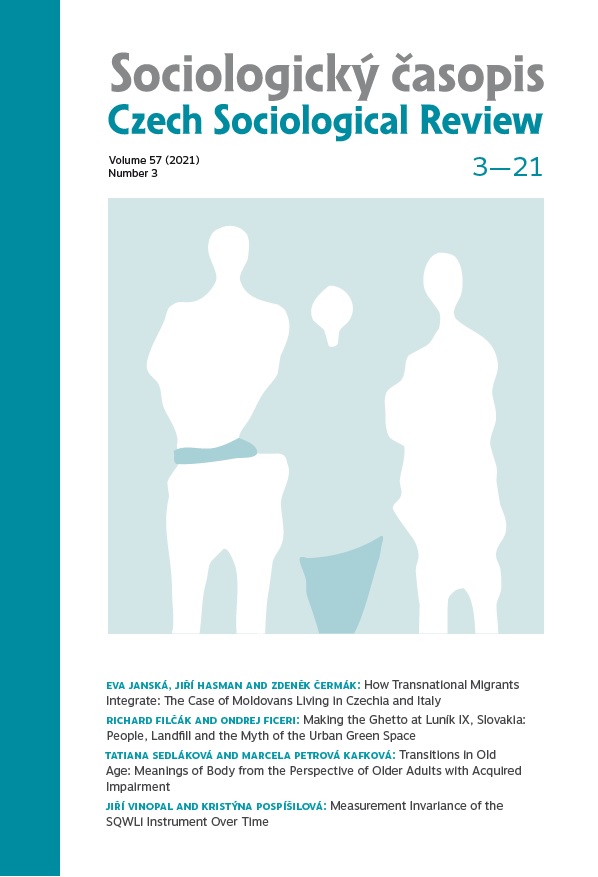Transitions in Old Age: The Meanings of Body from the Perspective of Older Adults with Acquired Impairment
Transitions in Old Age: The Meanings of Body from the Perspective of Older Adults with Acquired Impairment
Author(s): Tatiana Sedláková, Marcela Petrová KafkováSubject(s): Sociology, Gerontology
Published by: AV ČR - Akademie věd České republiky - Sociologický ústav
Keywords: fourth age; body; transitions; acquired impairment; repeated interviews; meaning of the body
Summary/Abstract: This paper summarises the knowledge about transition from the third age to what is called the fourth age. The study understands ageing as an embodied process and explores the meanings that are attached to the body in the narratives of older persons who have acquired impairment in later life and are receiving care. Because the onset of impairment and infirmity marks a point of transition, the study considers the bodily aspects of the ageing process as key elements, despite this being highly problematic in current social gerontology. The authors call for a complex approach to understanding the meanings of the body in the transitions into old age and drawing on their own study based on three repeated interviews with ten older adults conducted over the course of one year (8 women, mean age = 83.8 years), they explore the meanings that are attached to the body in the context of receiving care. Their analysis of the personal accounts and narratives of everyday activities from the participants in their study revealed that embodiment in action is the main topic through which participants experienced their everydayness. The meanings of embodiment in action are shaped and reconstructed on three dimensions that capture important processes of embodiment in action: the sensing of the body (the Body as an Organiser of Activities), anticipation of the body (the Body as an Uncertain Companion), and the managing of the body (the Body as Work to Be Done). The findings offer insights into the processes of transitions in old age, in which the emotional, social, and behavioural aspects of embodiment in action, rather than age, play the key role. The study further highlights that the meanings of the body are complex, highly relevant, and should not be overlooked within the organisational practice of social and health care.
Journal: Sociologický časopis / Czech Sociological Review
- Issue Year: 57/2021
- Issue No: 3
- Page Range: 315-342
- Page Count: 28
- Language: English

